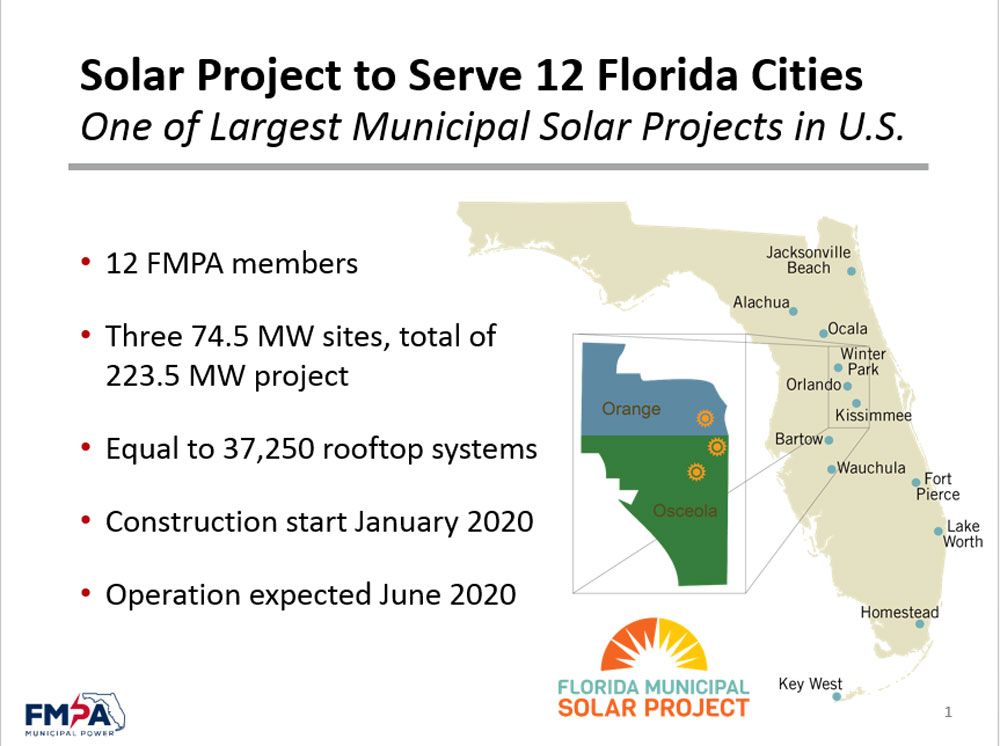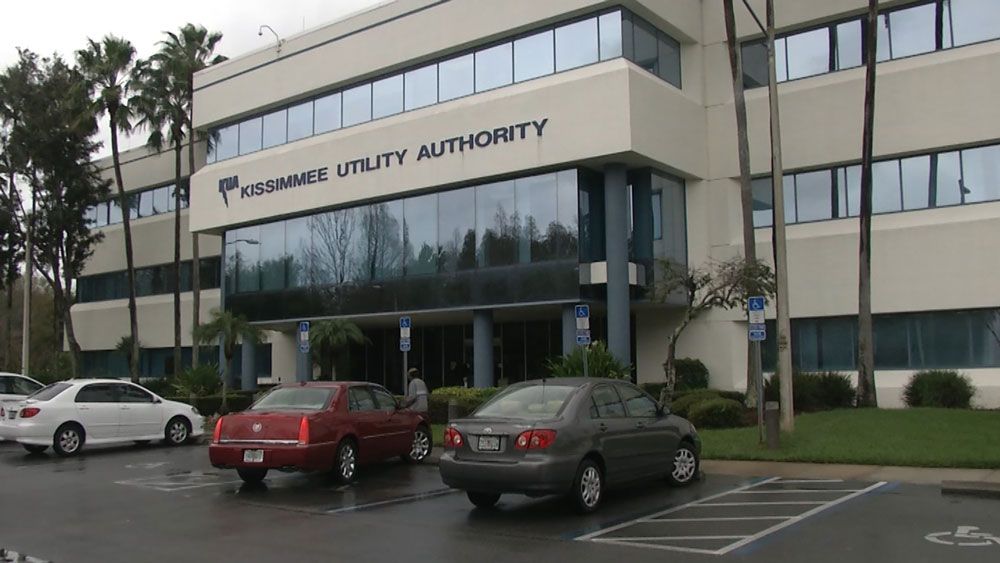KISSIMMEE, Fla. — Kissimmee will be the first city in Florida to have all of its facilities connected to solar energy.
- Florida Municipal Solar Project expected to go online in 2020
- Kissimmee will be the first to connect all government buildings
- Residents will be able to subscribe too
The city is part of the Florida Municipal Solar Project, a coalition of a dozen cities hooking into three new solar farms expected to open in 2020.
But Kissimmee is the first one to commit to converting all of its government buildings to solar power when the solar farms go online.
“If we unite as a community to clean our environment and use clean energy, I think we will have it for today and our future generations,” said Melissa Zayas Moreno, the spokesperson for the City of Kissimmee.
One of the solar plants will be in Orange County, while two will be built in Osceola County, east of St. Cloud.
Kissimmee Utility Authority has rights to 30 megawatts, and the city government will be consuming nearly one of those megawatts alone. The rest can be used by homeowners or businesses, who may see long-term cost savings.
“Customers who start off (in the project) will be paying slightly more," said Chris Gent, KUA spokesperson. "But when you look over the 20-year agreement with the city, it’s possible and likely that fuel cost over that 20-year span will go higher. But that solar energy (price) will be fixed. So it will be during those months and possibly those years where their energy costs will be lower than everyone else.”
Danny Bumpus drives his electric vehicle all around town. In fact, one of the charging stations he uses is right in front of Kissimmee’s City Hall.
“I thought it would save money, it would be kind of cool, and of course help the environment,” Bumpus explained.
Bumpus has always wanted to have solar panels on his roof but knows installing the system is expensive. He said it’s nice to know there will be another option to go green.
“I would hope all the cities and counties would jump on that and municipal buildings, and other types of buildings and so on,” Bumpus said.
People who want to get involved in the project can purchase a subscription that gives them a portion of the energy generated from the solar farm for their needs.
Subscribers will not have to install solar panels on their roofs, and there will be no startup fee to hook up.
The plants are expected to go online in mid-2020, with 223.5 megawatts of solar power, enough to power at least 45,000 homes. KUA says the project may expand after that, depending on demand.




